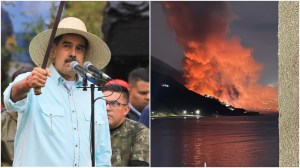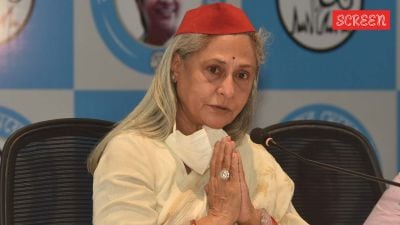Stay updated with the latest - Click here to follow us on Instagram
The Boy Who Lived
From the pocket of his wallet,Timothy Knatchbull,grandson of Lord Louis Mountbatten,pulls out a small sheaf of photographs to introduce his family his wife Isabella...
Timothy Knatchbull on his recent book that revisits the bomb blast that killed his grandfather Lord Mountbatten and twin brother
From the pocket of his wallet,Timothy Knatchbull,grandson of Lord Louis Mountbatten,pulls out a small sheaf of photographs to introduce his family his wife Isabella,his several young children,and an old black-and-white shot of a teenage boy with wonderfully large eyes. This is Nicholas,my identical twin. We not only looked the same,we were the same, he says,and then lifts his head to point to a mole under his chin. That mole was the only way my mother could tell us apart.
The last time anybody needed to check for the mole was on the morning of August 27,1979. That day Lord Mountbatten,the first governor-general of independent India,went on a family boat ride with the twins and a few others at County Sligo in Ireland. It should have been an idyllic outing,but by noon,the boat was bombed to smithereens by the IRA. Mountbatten was dead,as were three others,among them 14-year-old Nicholas.
Now,after 30 years,Knatchbull,45,finally says goodbye to his twin through a detailed book about the assassination,From a Clear Blue Sky: Surviving the Mountbatten Bomb (Hutchinson). We all have one car crash in our lives,mine just happened to be a bomb. The book is an account of the path I took to heal myself. I hope it will encourage others to find their own,though the book isnt a prescription but a description, says Knatchbull,a former BBC reporter and current chairman of a media company called Production Wizard.
He is visiting Delhi with his mother Lady Patricia the elder daughter of Louis and Edwina Mountbatten now almost 86,for the India launch of the book. It is variously a historical document,a personal catharsis and a close look at his extended family where we see the British royalty and aristocracy at home Queen Elizabeth II giggling and staying up past her bedtime to take care of her young guests and Dickie Mountbatten chanting impromptu rhymes like Nicklas,Nicklas dont be so ridiclas.
The tragedy in his family parallels that of the Gandhi family,and Knatchbull,who catches up with the Gandhis on his India trips,points out that both have tackled injury through forgiveness. But Knatchbull himself took a long time to come to terms with the tragedy. In 2003,on the 24th anniversary of the tragedy,he returned privately and quietly to Ireland,for the first time after the attack. I needed to return to the place of the murders. I had to learn how it was done,how it was planned,how it was executed,how many people knew, he says.
He spent up to 10 days every month,over a year,talking to everybody he could. This gives the book its whodunit feel,though the suspects Thomas McMahon and Francis McGirl have,by many accounts,got away lightly. McGirl walked free,and McMahon,sentenced to life,was released in 1998 under the terms of the Good Friday Agreement. I wish him well. I have heard that he has re-integrated into society and has not returned to violence, says Knatchbull,with a lack of anger or bitterness.
He says,What lay behind the attacks was the presence of the British in Ireland . We as a nation need to seek forgiveness from the Irish people. There were wrongdoings on both sides. The attack was a means to give vent to a fury built over centuries. My family was a symbol. The people on the boat on that fateful morning were related to the queen of England and every European royalty.
Knatchbulls short stay in India includes meeting NGOs. On Tuesday,I will visit students of a school for Burmese immigrants, says the grandson of Earl Mountbatten of Burma. Knatchbull no longer hears echoes of the bomb ringing in his ears,he no longer checks for bombs under his car while pretending to look for dropped coins,his arms and legs,though,are covered with scars,his left eye and ear are almost non-functional but the wounds within,it seems,have faded.







